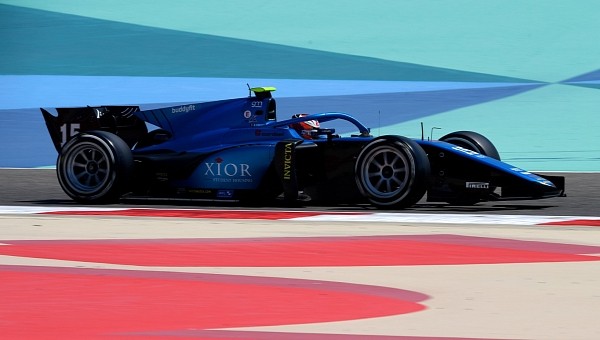The Formula 1 season is about to start and it is joined by Formula 2 and Formula 3 support series. These junior categories not only serve to prepare drivers for the top of motorsports but also test out new technologies before they are rolled out in the big league.
The newest thing to find its way onto the grid is the use of sustainable fuels, as part of Formula 1’s ambition to become Net Zero Carbon by 2030. Part and course of this transition is the goal of using 100% sustainable fuels for the new engines, which will be introduced in 2026.
That is when the biggest regulation change will occur since the start of the turbo-hybrid era. And it is sorely needed if the sport is to keep on going in a world of electrification. There is already a push in this direction and adaptability has never been more important.
But before such a huge change is rolled out, it has to be tested and proven to work and this is where the junior categories are more important than ever. Formula 2 and Formula 3 teams have been running a mixture containing 55% Advanced Sustainable Fuel over the course of 8,000 laps during Bahrain testing. This is the percentage that will be used during the 2023 season, followed by a yearly increase until normal fuel is completely taken out of use.
Of course, as many fans know, Formula 1 innovation usually has a knock-on effect and trickles down to road cars when it becomes financially viable. This idea is echoed by Ahmad Al-Khowaiter, who is the Chief Technology Officer of Aramco, Formula 1’s global partner who developed the fuel that will power the junior series.
According to him, efforts are not restricted to just developing low-carbon sustainable fuels. Research is also being done to develop more efficient engines as well as carbon capture technology. This is not a guarantee that internal combustion will keep on keeping on, but it is a glimmer of hope when coupled with Porsche’s investment in synthetic eFuels.
Mohammed Ben Sulayem, president of the FIA, has also supported Ahmad’s statement. He says that Formula 1 is at the forefront of developing innovative and proactive that could help the entire transportation industry in the future.
Ben Sulayem has also praised the introduction of sustainable fuels into the junior categories, supported by Bruno Michel, CEO of both Formula 2 and FIA Formula 3. The two officials pointed out how important this landmark is in achieving the goal of a complete transition at the top of motorsport.
This might not sound too important, considering that races are not the biggest emission issue we are facing. But it is a big deal, as it means clean combustion could become implemented throughout the transport sector, be it personal, public, or commercial.
The newest thing to find its way onto the grid is the use of sustainable fuels, as part of Formula 1’s ambition to become Net Zero Carbon by 2030. Part and course of this transition is the goal of using 100% sustainable fuels for the new engines, which will be introduced in 2026.
That is when the biggest regulation change will occur since the start of the turbo-hybrid era. And it is sorely needed if the sport is to keep on going in a world of electrification. There is already a push in this direction and adaptability has never been more important.
But before such a huge change is rolled out, it has to be tested and proven to work and this is where the junior categories are more important than ever. Formula 2 and Formula 3 teams have been running a mixture containing 55% Advanced Sustainable Fuel over the course of 8,000 laps during Bahrain testing. This is the percentage that will be used during the 2023 season, followed by a yearly increase until normal fuel is completely taken out of use.
Of course, as many fans know, Formula 1 innovation usually has a knock-on effect and trickles down to road cars when it becomes financially viable. This idea is echoed by Ahmad Al-Khowaiter, who is the Chief Technology Officer of Aramco, Formula 1’s global partner who developed the fuel that will power the junior series.
According to him, efforts are not restricted to just developing low-carbon sustainable fuels. Research is also being done to develop more efficient engines as well as carbon capture technology. This is not a guarantee that internal combustion will keep on keeping on, but it is a glimmer of hope when coupled with Porsche’s investment in synthetic eFuels.
Mohammed Ben Sulayem, president of the FIA, has also supported Ahmad’s statement. He says that Formula 1 is at the forefront of developing innovative and proactive that could help the entire transportation industry in the future.
Ben Sulayem has also praised the introduction of sustainable fuels into the junior categories, supported by Bruno Michel, CEO of both Formula 2 and FIA Formula 3. The two officials pointed out how important this landmark is in achieving the goal of a complete transition at the top of motorsport.
This might not sound too important, considering that races are not the biggest emission issue we are facing. But it is a big deal, as it means clean combustion could become implemented throughout the transport sector, be it personal, public, or commercial.








